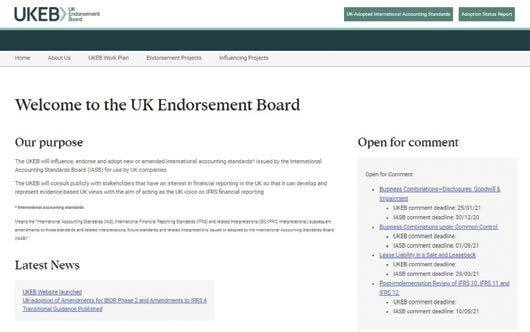STUDENTS
Developments in audit practice This article provides exam support to students sitting the audit papers in May 2021.
A
key emerging trend in internal and external audit is the use of data analytics to generate core analysis to highlight anomalies in the integrity of the accounting data.
Data analytics and ethics
Students should ensure that they have explored the role of data analytics, its strengths and limitations in practice for both internal and external auditors in their wider reading. At the time of writing, the IESBA Technology Working Group is exploring the impact of big data, blockchain, data analytics, etc. on the ethics of the auditor but this will not report until mid 2020 and therefore is an emerging issue. However, the IESBA issued an ED Proposed Revisions to the Code to Promote the Role and Mindset Expected of Professional Accountants in July 2019, which aims to identify opportunities to emphasise and reinforce the mindset and behavioural characteristics expected of professional accountants in business and in public practice. This is discussed in more depth in the professional judgment section of this review.
Audit reporting
Students are reminded that audit reporting is another core area of the syllabus and that it extends more widely than the conventional audit report. The development of the extended audit report in the UK has influenced international audit reports and students should be familiar with this. There do, however, remain weaknesses in reporting and the Brydon Review recommends the following areas for improvements: ● Create continuity between successive audit reports. ● Provide greater transparency over differing estimations, perhaps disclosing graduated findings.
8
● Call out inconsistencies in information made public. ● Reference external negative signals and how they have informed the audit. The standard ISA 720 The Auditor’s Responsibilities relating to Other Information was revised in June 2016 and its impacts are starting to be seen in the current cycle of audit reporting. Under ISA 720, the auditor is responsible for ensuring that other information included in the audited financial statements is not materially inconsistent with either the financial statements or their understanding of the entity’s position from their knowledge of the business gained during the audit. This relates to all of the narrative information issued by the reporting entity and covers all of the material issued before the audit report. This supports the ethical requirement that the auditor avoids being knowingly associated with information that is either materially false or misleading. It is particularly focused on the need to make the auditor’s comment on the extended disclosure requirements for directors around risk and viability statements. The standard requires that the auditor specifically reviews and comments upon: a. the directors’ confirmation in the annual report that they have carried out a robust assessment of the principal risks facing the entity, including those that would threaten its business model, future performance, solvency or liquidity; b. the disclosures in the annual report that describe those risks and explain how they are being managed or mitigated; and c. the directors’ explanation in the annual report as to how they have assessed the prospects of the entity, over what period they have done so and why they consider that period to be appropriate, and their statement as to ISSUE 115 | AIAWORLDWIDE.COM










